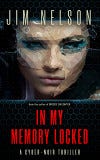Quick hits, August 2021
New Kindle Unlimited numbers, teenage reading tastes, Inbox Wars, and the SPSFC
Kindle Unlimited
Written Word Media updated their 2017 analysis of Kindle Unlimited with fresh numbers, and the results have not changed: For self-publishing authors, Kindle Unlimited remains a power to be reckoned with.
Kindle Unlimited (KU) is an Amazon service where users pay a monthly subscription free for buffet-style “all-you-can-read” Kindle books. It’s sometimes called “Netflix for e-books.”
That comparison extends to how Amazon compensates authors who make their books available through KU: Amazon tracks the total number of pages read in a single month for each book, forms a pool of money from a portion of the subscription fees, and divvies it out to writers based on their page-reads. Bonuses are offered to those who top the list for the month.
Written Word’s analysis is largely based on inferences and cocktail-napkin math, since Amazon has not been transparent about all aspects of KU. They also rely on polling their own customers, which they recognize as not statistically bedrock. Still, Written Word’s methodology is about as sound as any to be had. Their conclusions:
In June, the monthly fund was US$36.5m
Approx. 30.5 million novels read with KU that month (assuming 300 pages per book)
3.3 million KU readers (perhaps more if inactive subscribers are included)
Nearly one-quarter of KU subscribers read more than 20 books a month (!)
Romance, fantasy, and mystery are the most popular genres—heavy on the romance
What is known is that Amazon’s monthly pool of money has grown month-over-month for several years now. While KU is not nearly as well known as Prime, it’s obvious it’s a popular service and appears to be here to stay.
The upshot is, if you’re selling e-books, you should at least consider joining Kindle Unlimited for an additional source of readers and income (especially if you write romance). KU is only available to e-books placed into Kindle Select, however, meaning to join KU you must sell the title exclusively on Amazon. That makes the choice pretty steep for those who want to go wide, or have serialized the work on other platforms.
Written Word Media’s entire write-up is here. If your books are part of Kindle Unlimited, or you’re considering joining it, it’s well worth a read.
What teenagers look for in their reading
Subtitled “Understanding the teen literary graveyard and how writers can solve it,” The Writing Cooperative offers an interesting perspective on what teenage readers are looking for. Writer Teresa Grabs asked “about 100” teens on her sixteen year-old son’s chat groups what they were reading and why.
Big takeaways:
Teens are tired of traditional “sappy” romances.
But, they turn to Wattpad for that kind of story (rather than traditionally-published books) because, well, most of the romances on Wattpad for teenagers are written by teenagers
Online or digital reading is king. Physical books are not their preference
Some of the teens complained they were weary of sex-saturated fiction: “It’s okay to not have sex, ya know.”
Key thought:
The group of teens I have access to cry out for connection with the main character. Diverse characters in realistic settings and situations. Characters who have to go through the same thing they do. … In short, they are looking for themselves on the page.
One problem (touched on in the article) is that too often the phrase “teenage readers” is thought to be synonymous with YA fiction. Teenagers are more sophisticated than they’re given credit for. Active young readers will read well outside the marketing pigeonhole publishers foist upon them.
My take is that the best bet is honest writing and not “engineering” your book to attract teenage readers. Teenagers not only know when they’re being talked down to or manipulated—they’re unusually sensitive to it.
Full article here.
More links
Substack acquires Letters, a “public correspondence” startup. Letters use email to distribute written exchanges between popular intellectuals. This obviously dovetails with Substack’s recent moves to subsidize, promote, and even train writers to grow their newsletter audience. The Inbox Wars continue to heat up.
litty.co seeks fiction writers for early access. It’s difficult to tell from their website and single blog post, but it appears they’re attempting to cross-pollinate Patreon with a serialization platform like Wattpad or a newsletter-like service a la Substack.
ALLI (Alliance of Independent Authors) offers a comprehensive guide to organizing your book pre-orders.
On writing
I believe in individuality, in being oneself, in using the maximum of one's talent. ... That is what the public finally loves—something special and individual.
– Patricia Highsmith, Plotting and Writing Suspense Fiction
SPSFC selections announced
This morning I received an email informing me In My Memory Locked was accepted for the Self-Published Science Fiction Competition (SPSFC).
This is the contest organized by Hugh Howey (WOOL) and Duncan Swan (Monstre), well-known authors in the independent publishing arena. They’ve gathered ten teams of 59 judges (authors, readers, and podcasters) to narrow the field to a final winner.
Three hundred books were selected for the running, so there’s plenty of competition. The SPSFC generated a ton of buzz via word-of-mouth in the self-publishing community. The number of entrants blew past the 300 mark within hours of accepting applications. I’m plenty proud to have made the first cut.
If you’re curious what the hub-bub is over, check out In My Memory Locked, available now in Kindle and paperback.
Semi-finalists will be announced January of next year. Finalists and winner are announced in June. Fingers crossed!

